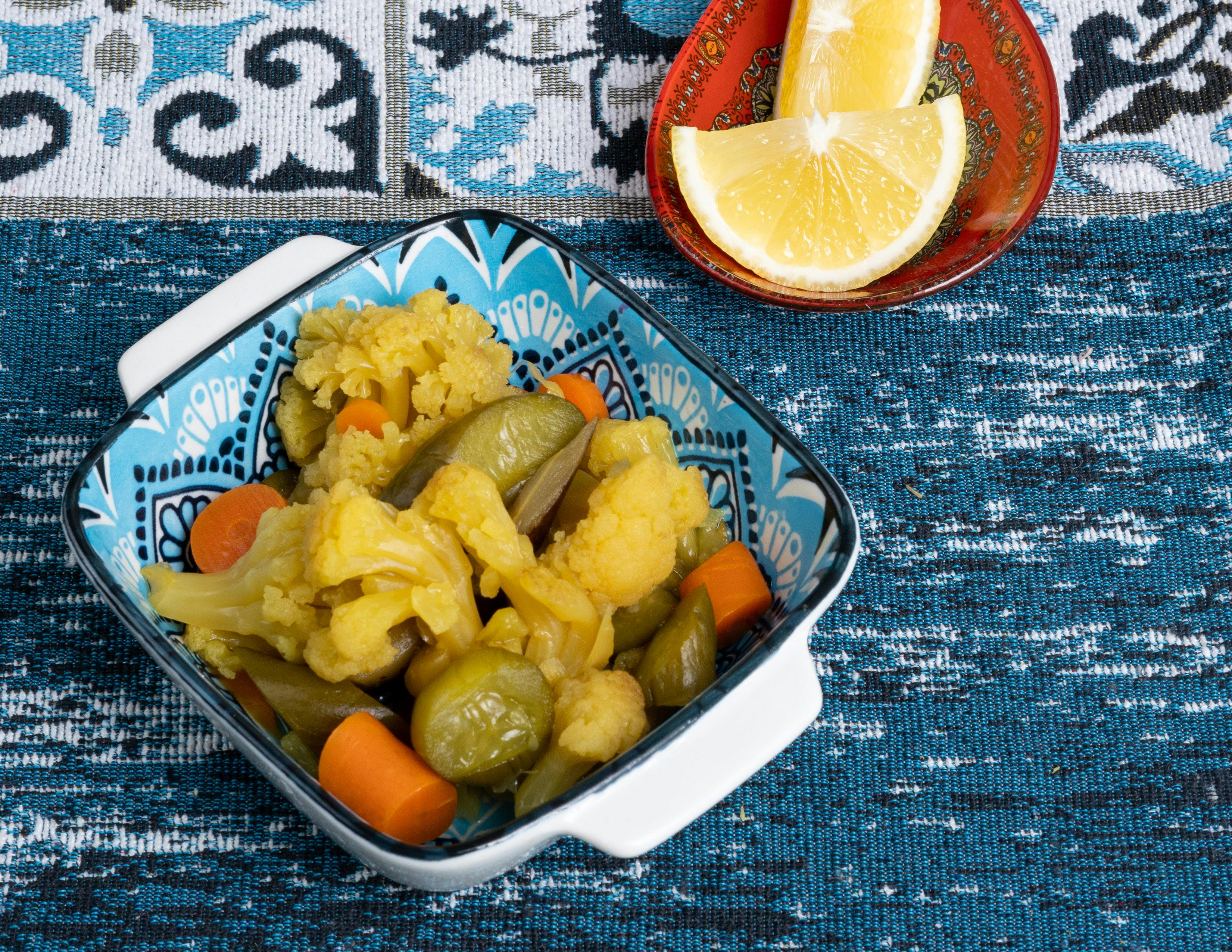Top 5 Healthiest Olive Oil Choices for 2025
As we step into 2025, the emphasis on healthy eating continues to rise, and olive oil remains a staple in many kitchens around the globe. Known for its rich flavor and health benefits, including heart health advantages and antioxidant properties, it is a versatile ingredient that enhances various dishes. This article explores the top five healthiest olive oil choices, focusing on key factors such as type, quality, and nutritional content.
Incorporating the best olive oil for health into your diet can provide numerous benefits, from reducing inflammation to improving heart health. We will discuss different types of olive oils, including the popular extra virgin olive oil, and provide insights on how to choose olive oil based on quality and benefits. Additionally, we'll highlight olive oil recipes that can help you fully enjoy its health advantages.
Here’s a preview of what you’ll learn:
- The unique features of each healthy olive oil choice
- How to assess olive oil quality
- Ways to incorporate olive oil into your meals
Let’s dive into the healthiest olive oils you can choose for a nutritious 2025!
Why Extra Virgin Olive Oil is the Ideal Choice
Building on the foundational benefits of olive oil, extra virgin olive oil (EVOO) stands out due to its high phenolic content and antioxidant properties. This type of olive oil is produced from the first cold pressing of olives, ensuring that it retains most of its natural nutrients and flavor.
EVOO is often recognized for its role in the Mediterranean diet, associated with a lower risk of heart disease and improved overall health. The numerous olive oil health benefits stem from its high content of monounsaturated fats, specifically oleic acid, which can help to reduce cholesterol levels and promote heart health.
When choosing an extra virgin olive oil, look for bottles that are labeled with quality indicators, such as organic certification and the origin of the olives. These factors can significantly influence the health profile of the oil.
Not only is EVOO beneficial for ingestion, but it also serves as a great oil for skin and hair care, reinforcing its versatility in both culinary and beauty applications.
Understanding Olive Oil Grades
To truly appreciate olive oil, it’s important to understand its grading. Extra virgin olive oil is the highest quality grade, followed by virgin, refined, and lampante oils. Each grade has varying levels of acidity and flavor, which affect health benefits.
While choosing the best olive oil for health, opt for products with lower acidity (below 0.8% is ideal for EVOO) and rich flavor profiles, which typically indicate superior quality. These quality factors are essential for maximizing the health benefits of olive oil.
In comparison, other grades like refined olive oils have undergone processing that can strip away beneficial nutrients, making them less healthy than their extra virgin counterparts.
Health Benefits of Olive Oil: A Closer Look
The health benefits of extra virgin olive oil are well-documented in various health studies. It is known for its antioxidant properties, which are vital in combating oxidative stress and chronic diseases. Clinical research has shown that regular consumption of olive oil can lower the risk of heart disease, stroke, and certain cancers.
Moreover, olive oil and cholesterol have a nuanced relationship; it can help raise "good" HDL cholesterol while lowering "bad" LDL cholesterol. The presence of polyphenols and other phytochemicals adds additional protective factors against heart disease and inflammation.
Incorporating olive oil into your daily routine, whether in salad dressings, cooking, or as a finishing oil, can help you reap these health benefits.
Cooking with Olive Oil: Best Practices
Cooking with olive oil can enhance flavors while providing health benefits. To maximize its health advantages, consider using cold-pressed or high phenolic olive oils that are more stable at cooking temperatures. Avoid overheating the oil to prevent degradation of its nutrients and flavor.
Using olive oil in marinades, as a base for dressings, or for sautéing vegetables can make any dish healthier. Explore various recipes that utilize olive oil to elevate both taste and nutrition, such as Mediterranean-inspired dishes that emphasize vegetables and healthy fats.
When assessing olive oil serving suggestions, keep in mind that a small amount can go a long way in enhancing the nutritional profile of your meals.
Top Olive Oil Brands to Consider
Various brands offer premium quality olive oils that are rich in flavor and nutrients. Researching top olive oil brands ensures you select oils that align with your health goals. Some notable brands known for their high-quality production methods include Colavita, California Olive Ranch, and Kirkland.
These brands often highlight their production processes, ensuring transparency regarding the origins of their olives and the methods used to extract their oils. High standards in production correlate with better flavor and higher nutritional content, giving you better options for your kitchen.
Sustainable and Organic Olive Oils
In recent years, there has been a notable increase in the demand for organic and sustainable olive oils. These products are not only environmentally friendly but also typically produced without harmful chemicals, ensuring higher quality and safety.
When exploring the health risks of olive oil, selecting organic options can alleviate concerns about contaminants and additives, focusing on purity and health benefits. Sustainable practices also ensure that you’re contributing positively to the environment.
How to Store Olive Oil for Maximum Freshness
Proper storage techniques are essential for maintaining the freshness and quality of olive oil. It's vital to keep it in a cool, dark place away from direct sunlight and heat sources to prevent rancidity. Using dark glass or tins can help shield the oil from light damage.
Understanding olive oil shelf life can guide you in consuming your oils while they’re still fresh. High-quality oils can last from 18 months to two years if stored correctly, giving you ample time to enjoy their health benefits.
Exploring Olive Oil Recipes for Everyday Use
Now that you understand the healthiest olive oil choices and their benefits, let’s dive into some olive oil recipes. Cooking with olive oil offers numerous options, from straightforward dressings to elaborate Mediterranean dishes that highlight its rich flavor.
Some essential recipes to try include olive oil-based dressings for salads, marinades for meats, and even desserts like cakes where olive oil can replace butter. These recipes offer not only delicious results but also max-health benefits.
Salad Dressings: Quick and Healthy Options
Creating your own salad dressing is quick and simple with olive oil. A basic vinaigrette can be crafted with a ratio of three parts olive oil to one part vinegar. Enhance the flavor by adding herbs, garlic, or mustard. You can experiment with different types of olive oil to find the best combination that suits your palate.
Using flavored EVOO can elevate simple salads, making them more appealing and nutritious. The nutritional benefits of using high-quality olive oil in dressings are manifold, providing omega-3 fats and polyphenols that support overall health.
Marinades: Infusing Flavor and Nutrients
Marinades are a fantastic way to enhance meats and vegetables, ensuring they are not only flavorful but also nutritious. Using olive oil as a base, mix with citrus juice, spices, and herbs to create a mouthwatering marinade. Allowing the meat or vegetables to marinate in olive oil helps in enhancing their flavors while delivering health benefits like improved digestion and enhanced antioxidant absorption.
Experiment with different olive oil varieties to discover new flavor profiles that can complement each dish, making cooking an exciting experience.
FAQs About Olive Oil and Its Health Benefits
What is the best olive oil for health?
The healthiest olive oil choice is often considered to be extra virgin olive oil due to its high content of antioxidants and healthy fats. Look for organic certifications to ensure quality.
Can olive oil help with weight loss?
Yes, incorporating olive oil into a balanced diet, such as the Mediterranean diet, can aid in weight management due to its satiating qualities.
How should olive oil be used in cooking?
Olive oil can be used for sautéing, as a dressing, in marinades, and even in baking. It's essential to use it at appropriate cooking temperatures to preserve its health benefits.
Is olive oil better than other cooking oils?
Olive oil, especially extra virgin, is generally regarded as healthier due to its fatty acid composition and antioxidant properties compared to oils like canola or vegetable oils.
How do I store olive oil for maximum benefits?
Store olive oil in a cool, dark place and ensure the bottle is tightly sealed to protect it from light and air, which can degrade its quality.


